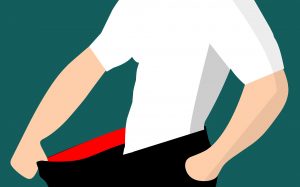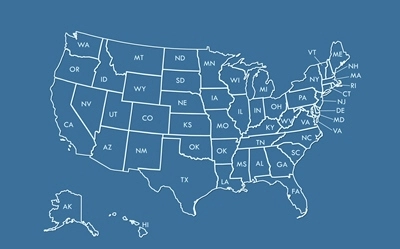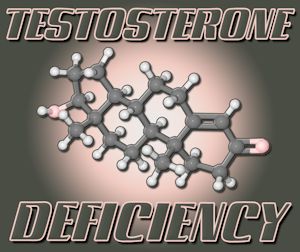 Most men these days are looking to boost their testosterone levels, either naturally or with testosterone replacement therapy (TRT). Many try the natural way first before starting hormone replacement. In fact, testosterone levels in men are the lowest we’ve ever seen, even in young men. Is there something in our food? Water? Are we not exercising enough? We do not know the answer but there are several natural ways that have been found to boost testosterone in many men. One of these ways is to eat a low-calorie and ketogenic-based diet.
Most men these days are looking to boost their testosterone levels, either naturally or with testosterone replacement therapy (TRT). Many try the natural way first before starting hormone replacement. In fact, testosterone levels in men are the lowest we’ve ever seen, even in young men. Is there something in our food? Water? Are we not exercising enough? We do not know the answer but there are several natural ways that have been found to boost testosterone in many men. One of these ways is to eat a low-calorie and ketogenic-based diet.
Low-Cal and Ketogenic Diet Dramatically Affects Testosterone Levels
A small study was recently presented at the European Congress of Endocrinology. It was looking at the effects of a very low-calorie ketogenic diet on insulin and testosterone levels in overweight or obese men. Unfortunately, obesity is on a rampage across America and several other countries around the world. According to the researchers, this type of diet had a “dramatic and early effect” on both insulin resistance and testosterone levels for the men.
 During a presentation, Dr. Angelo Cignarelli, MD, made the point that the findings of the study demonstrated a strong relationship between glucose regulation, hepatic (relating to the liver) and testicular function.
During a presentation, Dr. Angelo Cignarelli, MD, made the point that the findings of the study demonstrated a strong relationship between glucose regulation, hepatic (relating to the liver) and testicular function.
Dr. Cignarelli stated, “Functional hypogonadism is seen frequently in obese adults, and we know a low-calorie ketogenic diet may rapidly affect body weight. We also know that weight loss is associated with a rise in testosterone level; however, whether this recovery may be due to weight loss itself or some other precocious mechanism is still a matter of debate.”
Lose Weight and Boost Testosterone With Low-Calorie Ketogenic Diet
 In the study, 17 men who were overweight or obese but were not diabetic were assigned to a very low-calorie ketogenic diet for four weeks. The average age was 41 years and the average BMI was 36.4. The tests that were administered were oral glucose tolerance tests, bioelectrical impedance analysis and blood tests to assess glycemic response and insulin levels, total testosterone, sex hormone-binding globulin (SHBG) and luteinizing hormone (LH) at one and four weeks.
In the study, 17 men who were overweight or obese but were not diabetic were assigned to a very low-calorie ketogenic diet for four weeks. The average age was 41 years and the average BMI was 36.4. The tests that were administered were oral glucose tolerance tests, bioelectrical impedance analysis and blood tests to assess glycemic response and insulin levels, total testosterone, sex hormone-binding globulin (SHBG) and luteinizing hormone (LH) at one and four weeks.
The baseline levels of testosterone were averaged at 2.5 ng/mL and the baseline level of SHBG was averaged at 24.2 nmol/L.
After the four weeks, the average weight loss was 20.5 lbs, fat mass loss was 14.3 lbs and BMI reduction was 3.1. At one and four weeks, mean total testosterone rose by 0.49 ng/mL and of 0.89 ng/mL, respectively. There were mean increases of 3.47 ng/mL and 10.94 ng/mL in serum SHBG levels at one and four weeks, respectively.
The group of 17 men, after the four weeks, were divided into high and low responders to the diet, with the high responders differing only their level of insulin sensitivity.
 The researchers noted that the low responders were more insulin resistant than the high responders, despite a comparable level of glycemia during their oral glucose tolerance test.
The researchers noted that the low responders were more insulin resistant than the high responders, despite a comparable level of glycemia during their oral glucose tolerance test.
Cignarelli also stated, “We found a significant increase in testosterone level at the end of the study, and almost half of this rise was observed after only one week of nutrition intervention in parallel with a dramatic reduction of insulin levels. Therefore, low-calorie ketogenic diet could be safely used to improve hypoandrogenemia, and possibly to rescue obese patients from functional hypogonadism.”
Reference
Contact Us Today For A Free Consultation

- Weight Loss Cure - Metabolic Cookbook - Video [Last Updated On: January 25th, 2024] [Originally Added On: July 12th, 2013]
- Qualigen Receives FDA Clearance for Its FastPack® Vitamin D Immunoassay [Last Updated On: January 25th, 2024] [Originally Added On: July 16th, 2013]
- How Julia Montes lost weight [Last Updated On: January 25th, 2024] [Originally Added On: October 4th, 2013]
- Home - Dr. Jenyons Medical Weight Loss and Rejuvenation Center [Last Updated On: January 25th, 2024] [Originally Added On: December 8th, 2013]
- Dieters Beware: Weight Loss Products May Use Deceptive Marketing [Last Updated On: January 25th, 2024] [Originally Added On: January 8th, 2014]
- FTC Announces $34 Million in Settlements with Companies Over Bogus Weight-Loss Products [Last Updated On: January 25th, 2024] [Originally Added On: January 9th, 2014]
- The Point of P3 : #3 Food Sensitivities Discovered to Help Weight Maintenance - Video [Last Updated On: January 25th, 2024] [Originally Added On: May 19th, 2014]
- The Weight Loss Black List; Twelve Dangerous Weight Loss Ingredients [Last Updated On: January 25th, 2024] [Originally Added On: May 31st, 2014]
- Getting a degree in dieting [Last Updated On: January 25th, 2024] [Originally Added On: June 10th, 2014]
- Eat your way to a hot body [Last Updated On: January 25th, 2024] [Originally Added On: June 21st, 2014]
- 7 Fad Diets You Shouldn't Try [Last Updated On: January 25th, 2024] [Originally Added On: July 19th, 2014]
- Try the cookie diet? [Last Updated On: January 25th, 2024] [Originally Added On: July 25th, 2014]
- 14 Fad Diets You Shouldnt Try [Last Updated On: January 25th, 2024] [Originally Added On: July 26th, 2014]
- B12 Injection Therapy as Part of Hormone Replacement Therapy - Video [Last Updated On: January 25th, 2024] [Originally Added On: August 12th, 2014]
- FTC continues cracking down on weight loss scams [Last Updated On: January 25th, 2024] [Originally Added On: December 13th, 2014]
- Micronutrients: The Gateway to Cellular Health Function 101 [Last Updated On: March 1st, 2024] [Originally Added On: June 24th, 2020]
- Could a Revolutionary Weight Loss Strategy Be on the Horizon? [Last Updated On: February 24th, 2024] [Originally Added On: August 19th, 2020]
- Controlling Testosterone Levels Through Diet [Last Updated On: February 12th, 2024] [Originally Added On: October 12th, 2020]
- Selecting the Ideal Intermittent Fasting Protocol [Last Updated On: January 25th, 2024] [Originally Added On: October 20th, 2020]
- Limiting the Influence of Estrogen on Male Hormone Balance Through Diet [Last Updated On: January 25th, 2024] [Originally Added On: December 31st, 2020]
- Vitamin D and Sunlight for Mood and Hormone Balance [Last Updated On: January 25th, 2024] [Originally Added On: February 22nd, 2021]
- Testosterone-Boosting Foods: Nutrition for a Man [Last Updated On: September 18th, 2024] [Originally Added On: March 24th, 2021]
- The Standard American Diet is Linked to Poor Testicular Function [Last Updated On: August 23rd, 2024] [Originally Added On: June 8th, 2021]
- Drinking Water Alone Isn’t Enough [Last Updated On: August 26th, 2024] [Originally Added On: March 22nd, 2022]
- A High-Protein Diet – Good for Testosterone Levels or Not? [Last Updated On: September 3rd, 2024] [Originally Added On: March 29th, 2022]
- Inflammatory Foods Linked to Low Testosterone [Last Updated On: September 5th, 2024] [Originally Added On: July 18th, 2022]
- Vitamins and Nutrients that Keep Hair Healthy and Vibrant [Last Updated On: August 11th, 2024] [Originally Added On: November 23rd, 2022]
- Are You a “Soy Boy”? [Last Updated On: December 3rd, 2023] [Originally Added On: February 10th, 2023]
- Finding the Origin of Prostate Cancer to Stop Cancer Before it Starts [Last Updated On: October 25th, 2024] [Originally Added On: February 13th, 2023]
- How to burn calories while walking. [Last Updated On: February 20th, 2024] [Originally Added On: June 27th, 2023]
Word Count: 551




















